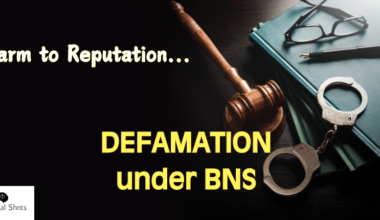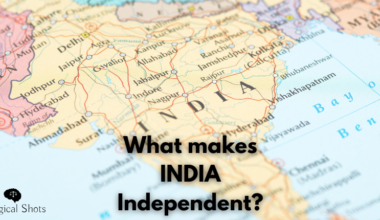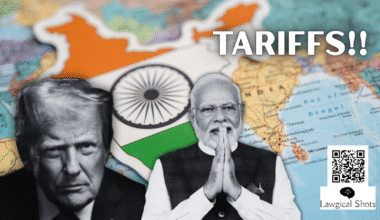When we were kids and used to play in the streets with friends from neighbourhood, the rules of games used to change every other day, and if there was a dispute, the aggrieved kid would leave the game and shoot to his/her home crying. If it was school, we may approach PT Sir (Physical Training Incharge), who would listen to both the sides and somehow decide the matter for the game to continue amicably. To keep it simple, let’s assume that the PT Sir from school became the Court of Arbitration for Sport when it came to International Sport Events like the Paris Olympics 2024.
With the ongoing controversy after Vinesh Phogat disqualification for 100 grams extra weight, while she was inching towards the hope for a gold medal for India, the Court of Arbitration for Sport became the talk of the town. Hence, we got this explanation over what the Court of Arbitration for Sport is, when it came into existence, and most importantly, why there is a need for such an institution.
Court of Arbitration for Sport
The CAS or Court of Arbitration for Sport was established in 1984. It is also named as the “TRIBUNAL ARBITRAL DU SPORT”. While initially there were some strings attached with the other sports organisations, in 1993, the Court of Arbitration for Sport (CAS) became an independent or say autonomous body, having its separate administration and finance body – the International Council of Arbitration for Sport (ICAS). CAS has almost 300 arbitrators chosen from 87 countries, handpicked for their specialised knowledge in the field of arbitration as well as sports law.
It is recognised by the Paris Convention and also signed by the presidents of the International Olympic Committee (IOC), the Association of Summer Olympic International Federations (ASOIF), the Association of the International Olympic Winter Sports Federations (AIOWF) and the Association of National Olympic Committees (ANOC). The Tribunals set up by CAS are not permanent, for the Olympic Games, the Commonwealth Games, and other major sports tournaments.
Sports Law Disputes
While laws are duly applicable on the other facets of life, sports didn’t go untouched by the same. The aim behind bringing such an institution in existence was to settle the legal disputes pertaining to athletes. The parties submit their disputes by initiating arbitration or mediation process, or simply going into appeal against the decisions declared by the sports organisations. The basis for such a legal process is the procedural rules decided for the specific needs of the sports world. Some examples of disputes related to sports could be the sponsorship contracts, doping case, or the recent disqualification of Vinesh Phogat during Paris Olympics 2024.
Who can approach the Court of Arbitration for Sport?
Like the other legal matters, even in Sports disputes, locus standi, i.e., standing before the law has to be proved to initiate the legal course. In case of CAS, it can be an athlete, sports federation, sports clubs, sports event organisers, sponsors or the television companies as per the information available on the CAS official website. While parties can present their case on their own, there is no restriction against having a legal representative. As per reports, Vinesh Phogat disqualification has been taken up by Senior Advocate Harish Salve to represent the Indian Olympic Association before the CAS.
How does the Court of Arbitration for Sport intervene?
In India, for the arbitration process to initiate, there has to be an arbitration agreement in place where the parties agree to settle the dispute through the arbitration process. Here again, in order to approach the CAS, such a written agreement between the parties has to be in place, maybe as a clause or a separate agreement, or through the statute/regulations held binding by the sports organisation. Similar to other arbitration cases, it could be agreed in advance or even after the dispute arose.
While disputes relating to laws of contract or torts may be decided through arbitration or mediation, those against the decision of the bodies of sports organisations go for appeals.
Procedure in Vinesh Phogat Disqualification Case
As per reports, Vinesh Phogat disqualification has been appealed before the Court of Arbitration for Sport, challenging her disqualification over a 100-150 grams exceeding the weight limit for the particular category of wrestling. The same is termed as the statement of appeal. Now, it is for the deciding body of the International Olympics Committee to submit its response to the CAS. This may be followed by an exchange of statements, then the hearing after producing evidence and arguments for their case. The final arbitral award will decide the fate of Indian wrestler Vinesh Phogat in Paris Olympics 2024.
Can CAS Award be Challenged?
Legal procedures are complicated. Since the Court cases in India are subject to appeals, even Supreme Court cases can be subjected to larger benches. Similarly, the CAS awards are also subject to judicial recourse to the Swiss Federal Tribunal. However, there are limited grounds for such intervention, for example, violation of procedural rules, lack of jurisdiction, or going against the public policy.
——————————************——————————
This Article is written by Ms. Ridhi Khurana, who showed interest to cover the ongoing controversy in the sports world and how law uncovers the interests at stake. To stay updated with the legal world, follow us on LinkedIn.








